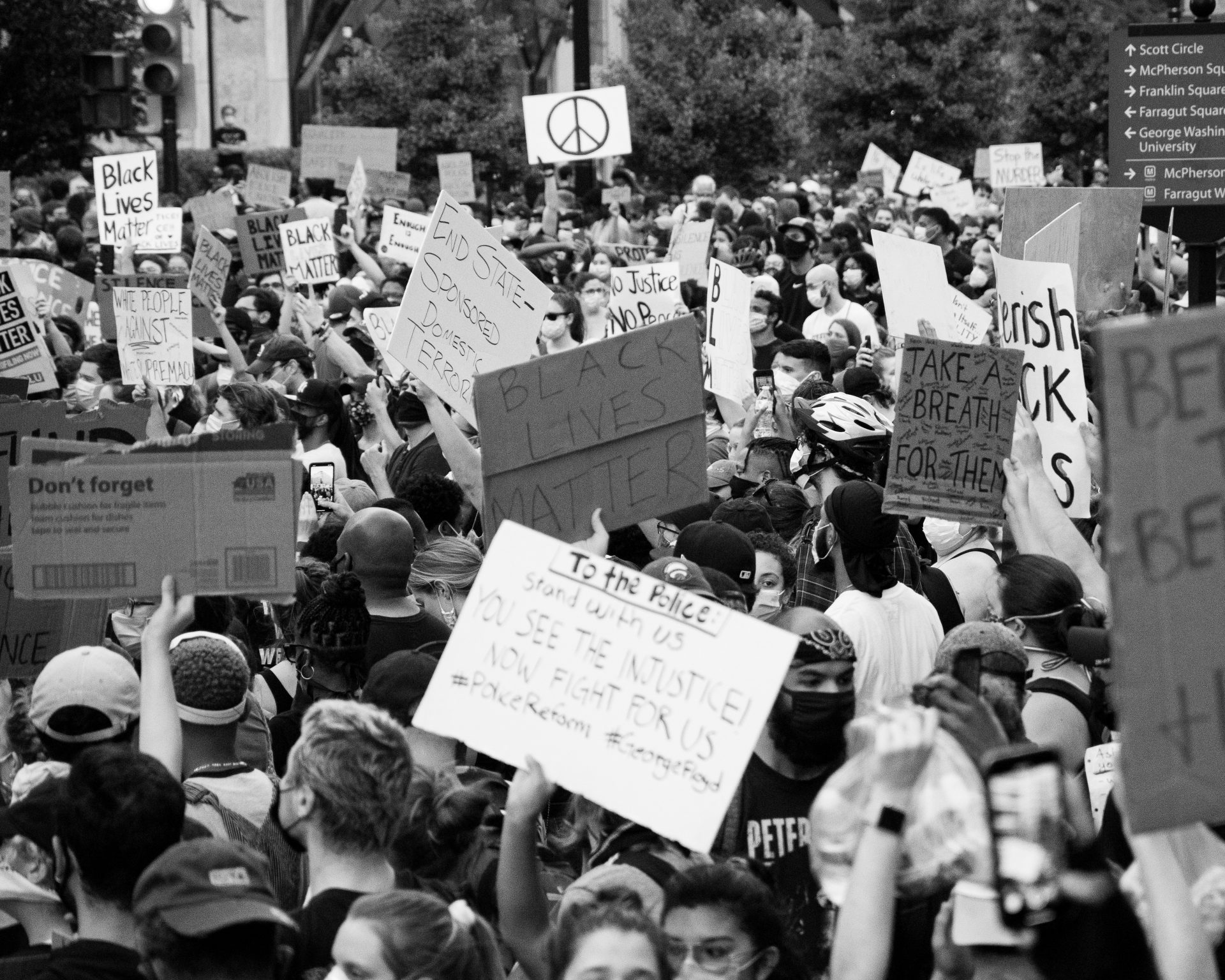
Black Lives Matter
 The slogan above is not without controversy. (What slogan isn’t?) It is tinged with political overtones, much like the phrase “pro-life,” and therefore Christians may be hesitant to use it. I would like to explain why I think the church should be willing to say it. I will not use Scripture, not because the Bible doesn’t speak to this subject, but because I ran through many of the relevant passages in my previous post. Those passages (and others like them) are the foundation for all I want to say today.
The slogan above is not without controversy. (What slogan isn’t?) It is tinged with political overtones, much like the phrase “pro-life,” and therefore Christians may be hesitant to use it. I would like to explain why I think the church should be willing to say it. I will not use Scripture, not because the Bible doesn’t speak to this subject, but because I ran through many of the relevant passages in my previous post. Those passages (and others like them) are the foundation for all I want to say today.
It is true that “black lives matter” is not just a slogan, but now a political movement having convictions and aims with which not every Christian will agree. The slogan comes with some “baggage,” as it were. Does that mean we abandon it, even if the statement itself is true? I don’t think so. If we are honest, we will admit that words like “Christian,” “evangelical,” and “Baptist” all carry a hefty amount of cultural and political baggage with them as well, and yet I happily wear those titles. Why? Quite simply, because they’re true. We bear Christ’s name. We preach and center our ministry on the gospel (the evangel). And at my church, we hold baptist theological convictions. We may use the terms sensitively—indeed, I hope we do—but we don’t abandon them wholesale.
One common objection to the phrase is that it seems to exclude other people. By saying black lives matter, are we suggesting, for example, that white lives don’t matter? Interestingly, this is exactly the same objection some people have to another popular political phrase, “God bless America.” Perhaps you have seen the bumper sticker that retorts, “God bless all nations—no exceptions.” What I find so fascinating about these two examples, is that the groups complaining about the two slogans have no overlap whatsoever! It seems, then, that we can all appreciate that specifying one group or nation doesn’t imply the exclusion of all others, so long as it’s our slogan under review. When I sing “God Bless America,” I don’t ever think, “Oh, and please curse Switzerland while you’re at it.” Similarly, when we say “black lives matter,” we don’t think, “Oh, and no other race or ethnicity is precious in your sight, God.”
But still, you might be thinking, why “black lives matter”? Why not All Lives Matter (a counter-movement politically), which—the argument goes—implies that black lives matter too? Perhaps an analogy will help us understand (and understand why All Lives Matter is such a terribly unhelpful phrase). I believe my local Fire Department cares about all the houses in my neighborhood equally. Because they care all about houses equally, they only show up to the houses engulfed in flames. I have not ever complained that the Fire Department doesn’t pay my house enough attention; rather, I am grateful that they don’t have to. The African American community is a house on fire, so to speak, engulfed by the flames of injustice and oppression. Thus, because all lives matter to God, we say black lives matter with the same focus, compassion, and active determination which the Fire Department brings to a residence in crisis.
Because we know how precious every life is in God’s estimation, I hope we can say (and back with action) that black lives matter.

Hi Dear Brother,
Thank you for your regular prayers for me and others. I was looking at some of your blog posts. This one on Black Lives Matter was a must read. Let me add a different illustration if I may. “My child died of cancer last week.” “Really, I had a 90 year old uncle who died of cancer 20 years ago.” The obvious problem with this dialogue is that the first person wasn’t really heard and empathized with. When relating with a black person it would be best to hunker down and listen. At some point you can broaden out to the truths that blue lives matter, all lives matter, etc.., but the first step is to lovingly listen and understand that black lives matter.
“Don’t just consider you own interests, consider the interests of others”